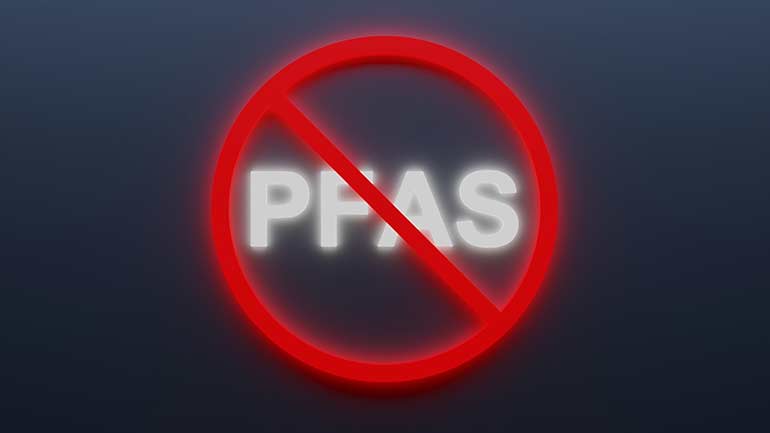PFAS evaluation underway
20th March 2024
FINLAND: The European Chemicals Agency (ECHA) has begun evaluating the proposed PFAS restrictions on a sector-by-sector basis but there is no indication yet of a timeline for the RACHP industry.
The ECHA’s scientific committees for risk assessment and for socio-economic analysis have begun evaluating the proposed restriction. They will also be taking into consideration the thousands of comments received from last year’s six-month consultation. This will be conducted in batches, focusing on the different sectors that may be affected.
In January last year, five countries – Denmark, Germany, the Netherlands, Norway and Sweden – submitted a proposal to the ECHA seeking a restriction on PFAS chemicals. The proposal claimed that the manufacture, placement on the market and use of PFAS are not adequately controlled and need to be addressed through the European REACH regulations. The REACH (Registration, Evaluation, Authorisation and Restriction of Chemicals) regulation governs which chemicals can be manufactured and used within the EU.
PFAS substances – perfluoroalkyls and polyfluoroalky – are known to be highly persistent in the environment, contaminating groundwater, surface water and soil, and causing serious health effects such as cancer and liver damage.
The restriction proposals include a new chemical definition of PFAS that could lead to a ban on practically all HFC and HFO refrigerants, as well as the fluoropolymers used in a number of critical refrigeration components.
The ECHA received more than 5,600 comments from more than 4,400 organisations, companies and individuals during last year’s consultation process. As well as forming part of the ECHA’s evaluation process, the comments will also be addressed by the five national authorities who prepared the proposal, with a view to updating their initial report.
The sectors and elements to be discussed in the next committee meetings are:
March: Consumer mixtures, cosmetics and ski wax
June: Metal plating and manufacture of metal products
September: Textiles, upholstery, leather, apparel, carpets; food contact materials and packaging; petroleum and mining.
The ECHA says that more information about the committees’ plans to evaluate the remaining sectors and about the next procedural steps will be announced as in due course. This was confirmed by an ECHA spokesperson who told the Cooling Post, “We currently have a plan until September committee meetings. Once the timings of committee discussions on additional sectors become clear, we will communicate that to the public through our website.”
The ECHA maintains that it is making every effort to progress opinion making, following the updates made to the proposal by the five national authorities. “The agency will deliver the final opinions to the European Commission in the shortest possible timeframe while ensuring their transparency, independence and high quality,” the ECHA said.
Related stories:
PFAS consultation receives over 5,600 comments – 26 September 2023
FINLAND: The European proposals to restrict the use of PFAS chemicals have received more than 5,600 comments from more than 4,400 organisations, companies and individuals. Read more…
EPEE seeks PFAS exemption for F-gases – 25 September 2023
BELGIUM: The European Partnership for Energy and the Environment (EPEE) has requested an exemption for F-gases and fluoropolymers in any forthcoming PFAS restrictions. Read more…
PFAS proposals are “disproportionate” – 2 September 2023
BELGIUM: An association representing 770,000 European technology companies has called the proposed “blanket restriction” of all PFAS, regardless of their toxicity and risk profile, disproportionate. Read more…
PFAS exemptions required for critical applications – 10 July 2023
GERMANY: A leading German research body has said that, without exemptions, any future PFAS regulation could jeopardise the safe and effective uninterrupted operation of refrigeration and heat pump systems. Read more…
PFAS ban would render systems unsafe – 25 May 2023
GERMANY: A leading European refrigeration research council claims that the safe, efficient and trouble-free operation of RACHP systems is not possible without the use of PFAS-containing materials. Read more…
PFAS ban affects most refrigerant blends – 12 February 2023
EUROPE: The banning of just five refrigerants under the new PFAS regulation proposals would lead to the banning of virtually all the current lower GWP HFC/HFO alternative refrigerant blends. Read more…







